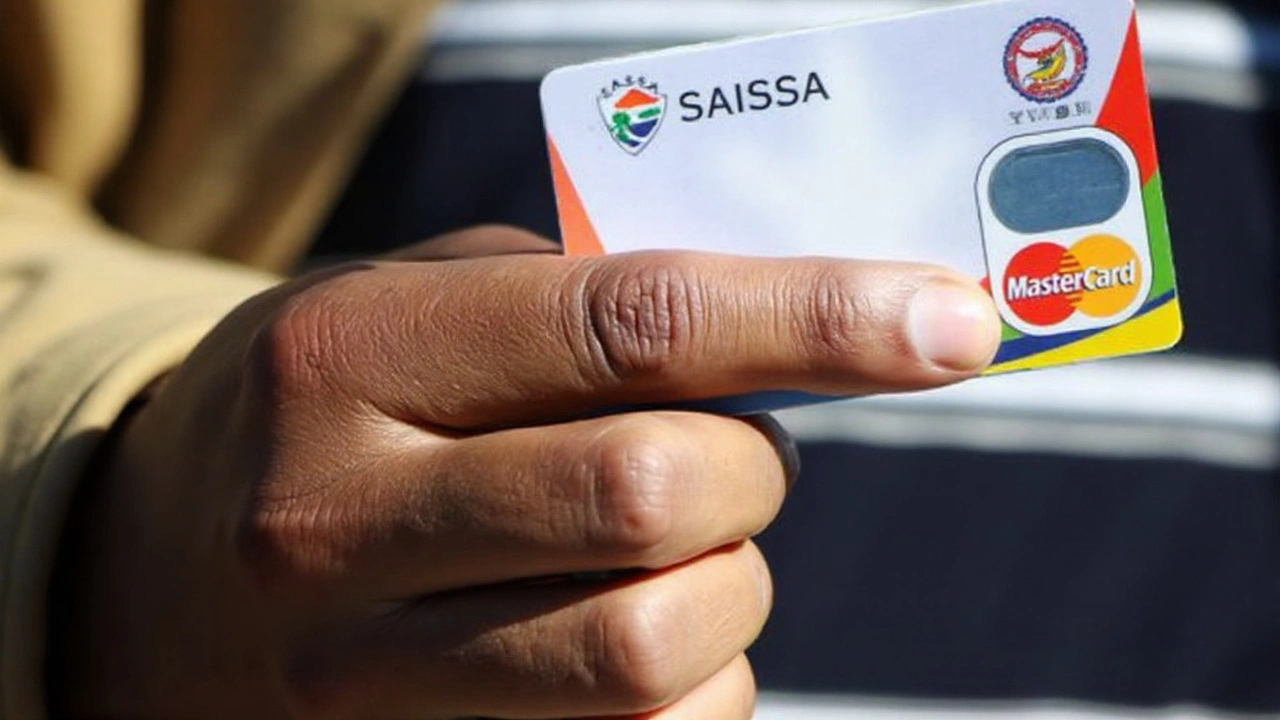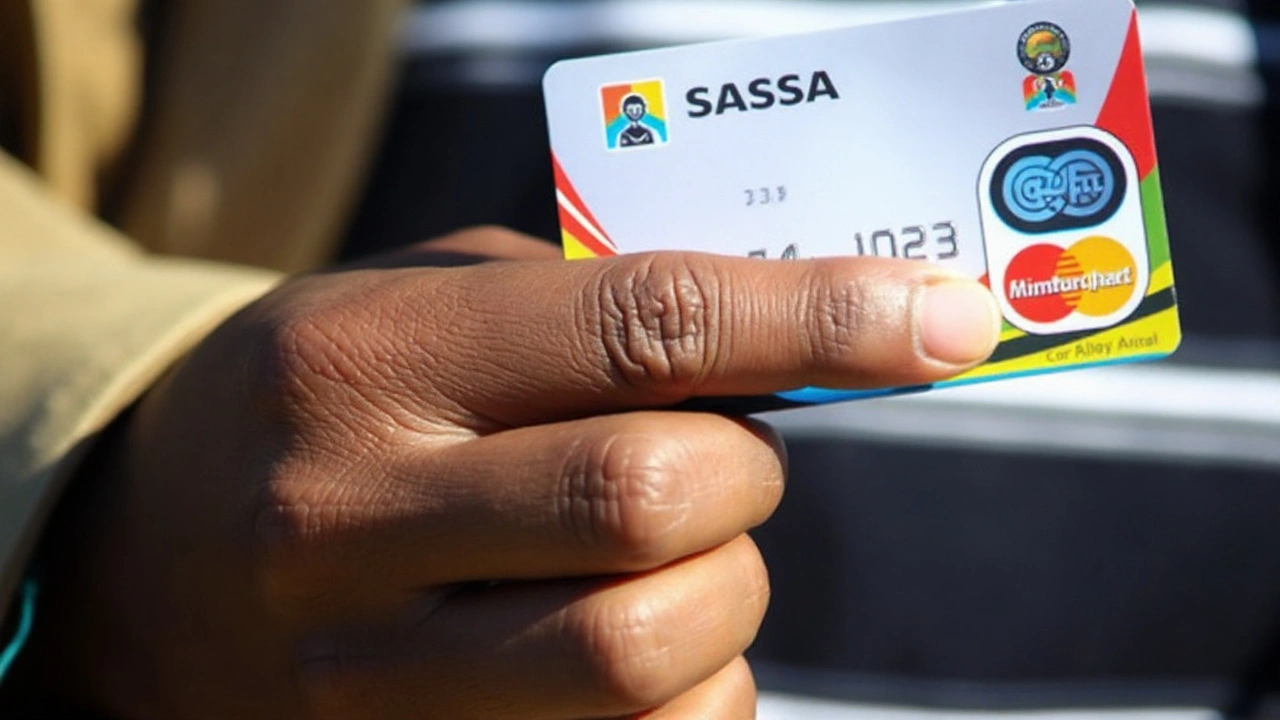August 2025 payment calendar and how it works
The South African Social Security Agency (SASSA) has finally put the August 2025 grant timetable on the public record. For millions of South Africans who rely on the safety net, knowing the exact day their money will be available removes a layer of uncertainty that often fuels anxiety each month.
According to the schedule, the oldest cohort gets first dibs. The Older Persons grant will be credited on Tuesday, 5 August. The very next day, Wednesday 6 August, disability recipients will see their payments arrive. Children’s grants follow on Thursday, 7 August. By staggering the payouts, SASSA aims to spread foot traffic across pay points and curb the long queues that usually spike in the first week of every month.
Importantly, the agency clarified that once the official date has passed, beneficiaries can collect their money at any later time. This flexibility means a pensioner who prefers to avoid the midday rush can simply swing by the nearest bank or Paypoint on a quieter afternoon. The same rule applies to disability and child‑related grants – the cash sits in the linked account until the holder decides to withdraw.

Grant amounts, eligibility and tips to avoid delays
All monetary figures for August remain the same as earlier announcements. Below is a quick snapshot of what each grant delivers:
- Older Persons (age 60‑74) – R2,315
- Older Persons (age 75 and over) – R2,335
- Disability – R2,315
- War Veterans – R2,315
- Care Dependency – R2,315
- Child Support – R560 per child
- Foster Care – R1,250 per approved caregiver
- Social Relief of Distress (SRD) – R370
Even though the numbers didn’t shift, SASSA warned that the real risk of missing out lies in outdated banking details or missing paperwork. Beneficiaries should log into the SASSA portal or visit a local office to confirm that their account numbers, branch codes, and ID details are current. A simple typo can lock a payment behind a verification hold, turning a smooth pick‑up into a days‑long ordeal.
For those still collecting cash at Paypoints, the agency recommends keeping the original grant receipt, a valid ID, and the latest bank‑statement handy. In regions where electronic transfers dominate, confirming that the beneficiary’s bank account remains active is key – some banks automatically close dormant accounts after a period of inactivity, which would halt the credit.
Another practical tip is to plan the collection around less busy hours. Paypoints typically experience a lull after the morning rush, roughly between 11 am and 2 pm. If you can afford the wait, visiting later in the day often means fewer people and quicker service.
SASSA also highlighted ongoing efforts to reduce waiting times at high‑traffic locations. Mobile collection units are slated to rotate through rural municipalities, offering a temporary “pop‑up” service that brings the paypoint closer to home. While the schedule for those units varies, the agency promises to update the public via SMS alerts and community radio.
Overall, the August timetable reflects a systematic approach: prioritize the most vulnerable (the elderly), then those with disabilities, and finally the younger households that depend on child‑related grants. By doing so, SASSA hopes to keep cash flowing steadily through the economy while easing the pressure on service centres.
Beneficiaries who act early – double‑checking their banking info, preparing the right documents, and timing their visits wisely – will likely enjoy a smoother experience. For anyone unsure about their status, the agency’s toll‑free line and local offices remain open for queries throughout the month.


Prince Fajardo
September 25, 2025 AT 19:40Oh, look at that – SASSA finally managed to write down some dates. As if the world needed another reminder that bureaucrats can’t be trusted to remember the basics. I suppose now the pensioners can plan their coffee breaks around this groundbreaking news. 🙄
Subhashree Das
September 25, 2025 AT 20:30The schedule looks neat on paper, but have you considered the systemic delays caused by outdated banking info? A single typo can turn a simple credit into a bureaucratic nightmare, and that’s not an "edge case" – it’s the norm. If SASSA truly wants to help, they need to enforce real‑time data validation, not just publish a calendar and hope for the best.
jitendra vishwakarma
September 25, 2025 AT 21:20I guess its good that they finally posted the dates. Might help some folks avoid the long lines. Still, I hope they fix the old account issues soon, otherwise all this schedule is just a useless paper.
Ira Indeikina
September 25, 2025 AT 22:26When a society decides to prioritize the elderly in its financial flows, it is making a quiet proclamation about its values. The staggered schedule is more than just logistical convenience; it is a moral statement that those who have contributed the most deserve the first line. Yet, does the system truly respect their dignity, or does it merely shift the inconvenience onto the young? The children’s grant, for example, sits on the fourth day, implying that the future is an afterthought. By arranging payouts in this hierarchy, SASSA is acknowledging intergenerational responsibility, but the question remains: are we merely cushioning the bureaucracy? The real test is whether the payments reach the intended hands without unnecessary friction. A typo, a dormant account, a missed SMS alert – all these tiny failures erode trust. Trust, once broken, is hard to rebuild, especially for those who rely on a single steady income. In philosophical terms, the schedule reflects a utilitarian approach: maximize overall happiness by smoothing the flow. However, utilitarianism can overlook the individual’s lived experience at the point of collection. The elderly might appreciate the early date, yet they also bear the emotional weight of a system that forces them to plan around it. Likewise, disability recipients may find themselves scrambling if their banking details are outdated, turning a promised safety net into a source of stress. This paradox highlights the gap between policy intention and practical reality. If SASSA wishes to honor its own timetable, it must also invest in proactive outreach, ensuring every beneficiary’s data is current before the date arrives. Otherwise, the calendar becomes a cruel reminder of what could have been.
Shashikiran R
September 25, 2025 AT 23:33It’s downright immoral to let people’s lives hinge on a single digit error in a bank account number. SASSA should be held accountable for each missed payment caused by their own negligence. The vulnerable deserve better than this bureaucratic roulette.
SURAJ ASHISH
September 26, 2025 AT 00:40This is just bureaucracy at its finest.
PARVINDER DHILLON
September 26, 2025 AT 02:03Let’s try to stay calm and help each other double‑check those details. A quick call to the local office can save a lot of hassle later, and a little patience goes a long way for everyone.
Nilanjan Banerjee
September 26, 2025 AT 03:26One cannot help but notice the lyrical cadence of SASSA’s newest timetable, as though the agency were composing a symphony of fiscal redistribution. Yet, beneath the polished veneer lies a discordant reality where paperwork becomes a gatekeeper to basic sustenance. The oldest cohort, granted precedence, may feel a fleeting sense of honor, but their celebration is short‑lived when a clerical oversight stalls their account. Meanwhile, disability recipients, whose livelihoods depend on punctuality, navigate a labyrinth of verification that feels more punitive than protective. The children’s grant, arriving on the fourth day, subtly reminds us that the future is relegated to a lower priority in the national agenda. The mobile units, touted as a solution, risk becoming a transient novelty if not integrated into a robust, permanent infrastructure. Moreover, the announcement assumes universal access to banking, ignoring the millions who remain unbanked or whose accounts lie dormant, a silent crisis masked by the schedule’s neat bullet points. SASSA’s insistence on “flexibility” after the official date may sound reassuring, yet it places the burden of timing on already vulnerable individuals. The advice to collect during off‑peak hours presumes access to personal transport, a luxury not afforded to many rural beneficiaries. In essence, the calendar is a double‑edged sword: it provides clarity while simultaneously exposing systemic inequities. If the agency truly wishes to alleviate anxiety, it must couple dates with proactive outreach, ensuring every beneficiary’s records are up‑to‑date well before the first payment day. Only then can the promised smooth experience move from aspiration to reality. Ultimately, the schedule is a mirror reflecting both progress and persisting gaps in South Africa’s social security fabric.
sri surahno
September 26, 2025 AT 04:50They’re hiding the real agenda behind these dates – a coordinated effort to keep the populace dependent and distracted. While they parade “flexibility,” the underlying goal is to monitor and control financial flows. Trust no official timetable; the system is designed to keep you guessing.
Varun Kumar
September 26, 2025 AT 06:13The schedule is clear, but the execution is always flawed. Check your details now to avoid delays.
Madhu Murthi
September 26, 2025 AT 07:36Seriously, they think posting dates will solve the chaos? 🙄 It’s like putting a band‑aid on a broken pipe. 🤦♂️
Amrinder Kahlon
September 26, 2025 AT 09:00Nice work on the calendar, SASSA. Maybe next year you’ll remember to send reminders before the deadlines?
Abhay patil
September 26, 2025 AT 10:23Let’s keep the momentum going – double‑check those bank details and spread the word. A little effort now saves a lot of trouble later
Amber Brewer
September 26, 2025 AT 11:46For anyone worried about missing a payment, the portal lets you verify your account details instantly. It’s a quick step that can prevent a lot of frustration later.
Kim Coulter
September 26, 2025 AT 13:10While verification tools are helpful, they also highlight how fragile our safety net truly is. Without vigilant oversight, even the best‑intentioned systems crumble under bureaucratic weight.
Michelle Toale-Burke
September 26, 2025 AT 14:33Don’t let a typo ruin your month – update your info now. It’ll save you a lot of unnecessary stress.
Amy Paradise
September 26, 2025 AT 15:56Absolutely, staying on top of those details is crucial! 😊 A little proactive effort goes a long way.
Janette Cybulski
September 26, 2025 AT 17:20Remember, the process is there to help you. Don’t hesitate to reach out if you’re unsure about any step.
Mildred Alonzo
September 26, 2025 AT 18:43Do you think SASSA will actually follow up on these reminders? It would be nice if they did.
Elizabeth Bennett
September 26, 2025 AT 20:06While skepticism is healthy, constructive dialogue can push agencies toward better practices. Let’s keep the conversation focused on solutions.